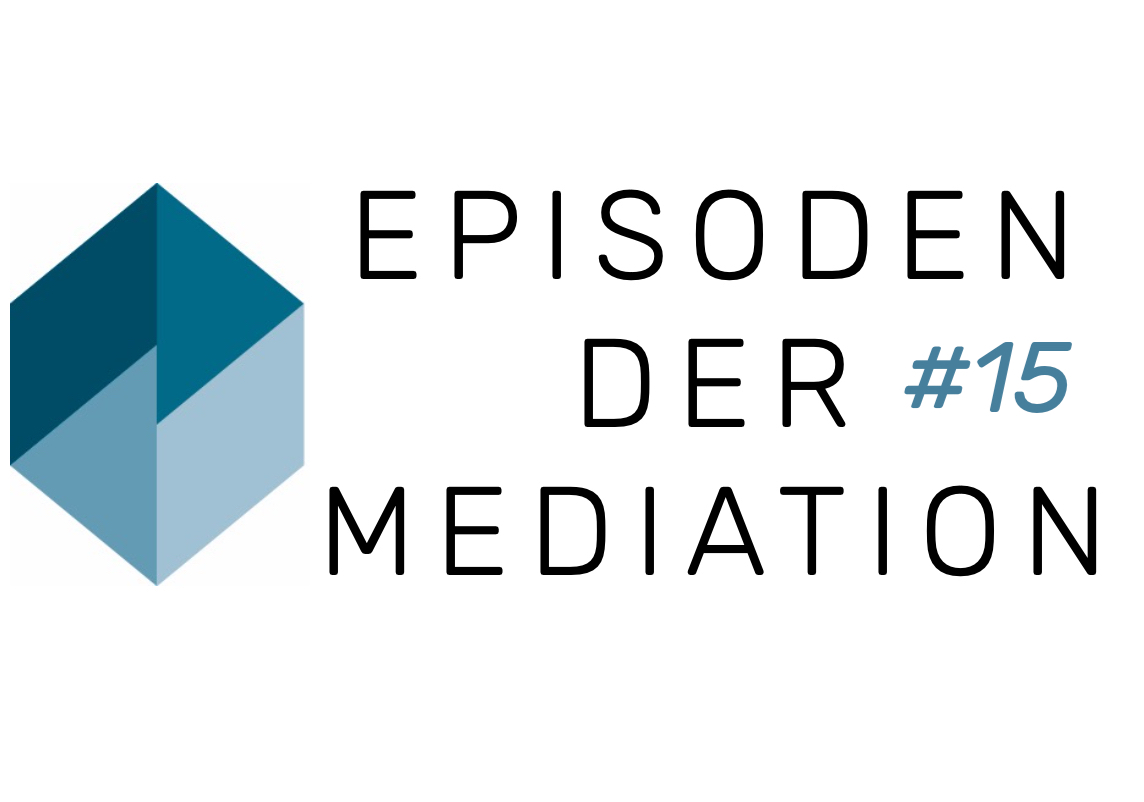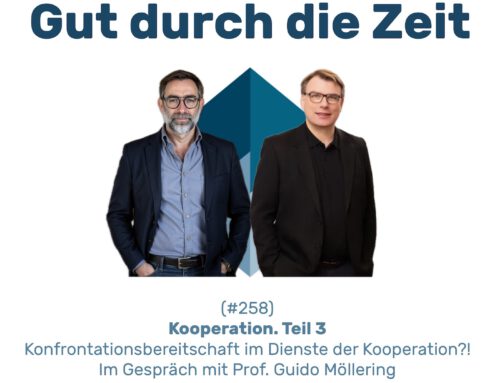INKOVEMA Podcast „Episodes of Mediation“
##15 – Mediation and Marketing I
Dragon slayer market, cannibalisation effects and the misunderstanding of mediation?
Which is why mediation is not an alternative to court, but a form of counselling without advice that has cannibalised similar conflict counselling procedures.
Episodes of mediation. The podcast on practical questions about mediation and conflict management.
Welcome to the EdM,
INKOVEMA's teaching stream on the practical issues of mediation and conflict management.
Practical situations in mediation, but also in coaching and conflict counselling, are explained, reflected upon and categorised.
That is Episdoe #15 – Mediation and Marketing I – Dragon Slayer Market, Cannibalisation Effects and the Misunderstanding of Mediation?
I recently spoke with my dedicated, very experienced colleague Dr Susanne Perker in the podcast "Gut durch die Zeit!", episode #112 was about mediation in family businesses and with business families, an exciting topic and highly interesting for mediators.
And that's when an interesting misunderstanding between us came up: I expressed my scepticism about some widespread views on mediation, so that my conversation partner felt reminded of the discourse on the Drachentötermarkt. This discourse is about the problem that, apparently, too few mediations are carried out in Germany. Too little, anyway,
- compared to the expectations of the mediation facilitators,
- too few, also in comparison to the trained mediators and
- too little compared to the perceived conflicts.
I think you can argue about that. But above all, in my opinion, this discourse is subject to a misunderstanding that is also reflected in this metaphor.
I understood this metaphor for the first time ever in this podcast! I always thought it meant that there are just more dragon slayers than dragons, but Susanne pointed out to me that the metaphor is mainly used because there are no dragons and therefore mediators are standing around looking stupid because there are no mediations.
But for someone like me, who grew up in a small town in the Ore Mountains that had the dragon slayer motif in its coat of arms and who had to walk over the dragon rock to the cinema almost every day as a child, it is not immediately obvious to claim that there are no dragons.
In the context of mediation, at any rate, it is fair to say that there are plenty of dragons, because they do not stand for mediation, but for conflict. And there are plenty of them. So the question would rather be, how do dragons and dragon slayers come together – or in other words: this is precisely where the misunderstanding lies!
Just because conflicts, escalated conflicts in particular, act like dragons in life and work relationships, it does not follow that mediators or mediation in general are the dragon slayers or that the image of the dragon slayer market covers the mediation market.
There is a lot to say about this. And I would also like to say a few things in this podcast, even though this podcast is intended to deal with episodes of mediation in the narrower sense. But if there really are "too few such episodes", then the things that lead to such episodes should also be addressed here.
Admittedly, the number of mediations per year in Germany – has certainly – increased over the past 30 years, perhaps even steadily and sometimes exponentially. There are hardly any reliable figures, but the probability is very high. Especially if you have a broad understanding of mediation, as Prof Trenczek suggests, listen to the podcast Gut durch die Zeit, Episode #68.
However, I expressly doubt that these – mediations, although increasing in number, – predominantly concerned conflict cases that would otherwise have ended up in court. This is also supported by the exorbitant decline in the number of lawsuits filed with the civil courts over the past 18 years, which is by no means reflected in a corresponding increase in the number of mediations. Mediation may indeed not be an alternative for parties in conflict who are considering going to court. Perhaps mediation is simply a method that (completely different) conflict parties decide in favour of in completely different conflicts – or not.
How then can the increase in mediations be explained? Aside from the small number of proceedings conducted by arbitrators at the courts, which we are excluding here; ... The increase in mediation can probably be explained by the fact that mediation has cannibalised the sibling proceedings of its advisory approach: Mediation has indeed been promoted by the state, especially in terms of judicial policy, in order to deal with the waves of lawsuits that swept through the German civil courts in the 1980s and 1990s: It wasn't just the time when Manne Krug, shortly before he praised the Telekom share, praised the Advocard as the favourite Kreuzberg, it was also the time when going to court was seen as an expression of steadfastness, righteousness and personal commitment to social norms.
Mediation has as little to do with judicial policy as impartiality has to do with neutrality. Not much, but it is easy to confuse.
The fact that mediation was and sometimes still is promoted by judicial policy, wanted by the state and desired by society, despite the rejection of mediation cost assistance, should not obscure the fact that mediation is rooted in a sphere that is completely removed from the state.
Mediation has its roots in counselling without advice, as Prof. Wandhoff explained in his phenomenal work "History of Counselling". Mediation is a form of conflict counselling in which no advice is given – apart from the fact that mediation is recommended as a procedure. In substance, however, mediation stems from the social impulse to prioritise the autonomy of the individual, their personal responsibility and self-development, over their obligation to the community. While law is therefore a coagulated social norm and represents the values of duty, mediation is culturally and sociologically in the tradition of self-optimisation, the idea of autonomy and the self-growth movement, as described by Andreas Reckwitz.
If one does not close oneself off to this line of thought, then it quickly becomes clear that mediation does not address the conflict parties who were on their way to court, but rather those who use their conflict in the sense of self-optimisation and who crave a conflict resolution process that takes this culturally conditioned, but highly personal, conflict into account. Moment served. Or in short: the vast majority of conflict parties who were once willing to sue do not find their way to mediation, but rather those who would not have gone to court in the past, but would rather have undergone couples therapy in their private lives and team development, team supervision and team coaching in their professional lives, which would have immediately led to organisational development. Everything that – would have led to self-optimisation in the style of the self-learning process – that is to be organised independently. You can always learn something. Even and especially in conflicts.
But, to conclude for today, none of this is meant to be pessimistic about mediation: quite the opposite. The spirit of the times, at least up to the present day, is in this tradition, so that mediation as a whole can expect further growth. And in my opinion, the signs are favourable that mediation will go the way of coaching and become an established institution for dealing with conflicts, with a tendency towards social distinction. In short, something elitist. But more on that another time.
That’s it for today, thank you very much for listening, and perhaps you were able to (further) develop one or two ideas for your case practice. Please let me know – I would be delighted to hear about it.
If you would like to support this podcast, leave feedback on Apple Podcast or INKOVEMA on GoogleBusiness, which has now been integrated into GoogleMaps.
For now, I bid you farewell with my best wishes. See you next time!
Get through this time well!
I am Sascha Weigel
Your host from INKOVEMA – the Institute for Conflict and Negotiation Management in Leipzig and partner for professional mediation and coaching training.





Leave A Comment